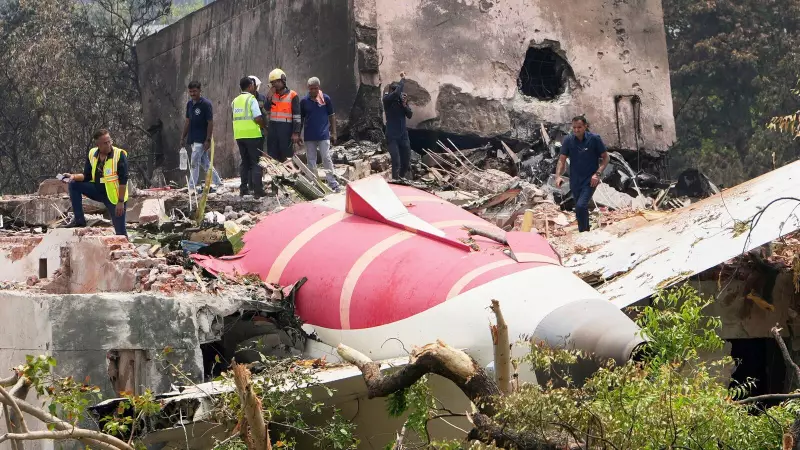
The prolonged closure of Pakistani airspace has dealt a devastating financial blow to Air India, with losses mounting to an astonishing ₹4,000 crore, according to shocking revelations from the airline's CEO Campbell Wilson. The aviation crisis continues to cripple operations while investigators make significant progress on the Ahmedabad crash probe.
The Billion-Dollar Airspace Standoff
In what marks one of the most significant financial impacts in recent aviation history, Air India's top executive has broken silence on the catastrophic economic consequences of Pakistan's airspace restrictions. "The numbers are staggering and unprecedented," industry analysts note, highlighting how geopolitical tensions have translated into massive corporate losses.
Ahmedabad Crash Investigation Breakthroughs
Meanwhile, the Aircraft Accident Investigation Bureau (AAIB) has made substantial headway in determining the causes behind the devastating Ahmedabad crash. While specific details remain confidential, sources confirm that critical evidence has been uncovered that could explain the tragic incident that shook the aviation community.
Campbell Wilson's stark assessment comes at a time when Indian aviation faces multiple challenges, from operational hurdles to safety concerns. The Air India CEO emphasized the dual challenge of managing both financial pressures and ensuring passenger safety amid growing operational complexities.
Industry-Wide Ripple Effects
The Pakistan airspace closure hasn't just affected Air India alone. Multiple Indian carriers have reported:
- Extended flight durations for Europe and North America routes
- Significant fuel cost increases due to longer flight paths
- Operational disruptions affecting thousands of passengers
- Cascading effects on flight schedules and crew management
Aviation experts warn that the continued airspace restrictions could have long-term implications for regional air travel patterns and bilateral relations between the neighboring nations.
Safety First: The New Aviation Mantra
Following the Ahmedabad incident, Air India and other carriers have implemented enhanced safety protocols and review processes. "The devastating nature of the crash has prompted industry-wide introspection," noted an aviation safety specialist familiar with the investigation.
As the aviation sector navigates these turbulent times, all eyes remain on both the financial recovery path and the crucial safety investigations that could redefine operational standards in Indian skies.





